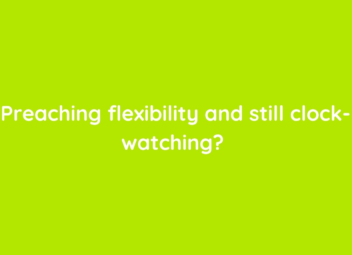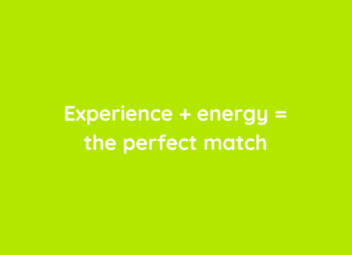
A successful PR campaign can help a brand or organisation to build trust and credibility among its key audiences and stakeholders. How does it achieve this? John from our team explains all…
First thing’s first – you’d expect someone who works in PR to say that PR is a great way to build brand trust and credibility. On a serious note, I’ve worked in this industry for over 20 years now and I’ve seen first-hand the impact that good PR campaigns and people can have on businesses. I wouldn’t run a business that does it, or still be doing it myself, if I didn’t truly believe it works.
If you’re reading this, we’ll assume you’ve got an interest in PR, maybe you work in PR, or perhaps you employ a PR agency. If you tick any of these boxes, you’re in the right place.
Here’s how PR can build trust in a brand, organisation, people or products.
Reputation
PR, in all its guises, has always had reputation as its core. A PR campaign is typically used to communicate good or favourable news or views to an intended audience, with the aim of increasing credibility, building sales, driving traffic, and so on.
Someone once told me that good marketing can’t save a bad product, and the same is true of reputation. If your business has a good reputation, customers are more likely to want to purchase, engage, follow. If it has a bad reputation, then the opposite can be true.
What’s this got to do with PR?
Look, no business is perfect. We all make mistakes. Mistakes impact a reputation. Is a bad reputation terminal? Only if it’s not addressed. PR can help to improve a reputation through a wide variety of tactics, which include media relations, social media engagement, community relations and more.
PR can help a business, person or a product to own a problem, face the problem, deal with the problem and turn the corner through transparency and consistency. Which, fortunately for me, are the next two points I’m going to discuss with you, dear readers.
Transparency
We live in an era of authenticity. Transparency is a key component of a successful PR campaign. Let’s say you’re launching a new product. Is it made locally? No? Then don’t claim it is. Are you a for-profit organisation masquerading as a non-profit? Don’t. Is it suitable for vegans? No? Make sure that’s part of your communications.
I understand the urge to gild the lily to get ahead in business but trust me on this. Your customers, stakeholders and the public will support your brand or product much more if they know exactly what it is and who you are. Be honest about that. Don’t pretend your campaign, product or business is something that it’s not. It’ll come to light eventually and then you’ll have to go back to step one – reputation – and all your hard work will be undone.
If you want to see the ultimate example of transparency then head on over to https://fckoatly.com/ (or www.feck-oatly.com if you’re in Ireland…). Or check out how McDonald’s opened its kitchens and invited everyone inside to see exactly how its food is stored, prepared and cooked through Open Doors.
Consistency
Consistency is key to building reputation and trust. PR will help deliver consistency in two ways – through regular activity, and by tying together other elements of a communications campaign.
Let’s start with the last point first. My friends in marketing and advertising will dispute this, and they’re wrong (jokes, love you really), but PR should sit in the middle of everything a brand or business does when it comes to communicating with an audience.
For example – you’re planning a new TV or radio ad. You should get your PR team to check it before it goes live. PR folk think about risk and reputation in a way that marketers don’t, and that’ll be useful for you. Also – does this new ad campaign align with what you’ve been doing as organisation, or is it a step change? Either way, good PR people will help your message become consistent regardless of the channel or platform, and consistency wins the race, always.
Now let’s talk about the frequency of your communications. If you’re consistent in how you speak and act, you will build trust with your audiences. Brands and businesses who have consistent communications are often the most prevalent in their industry. This sounds like an obvious point, but I think it gets lost on a lot of people. Story time.
We pitched for a company many moons ago, and one of the owners of the business had an issue with our budget. They said they were annoyed at having to pay for PR services as companies like McDonald’s don’t pay for PR and they’re everywhere. I spent five or six happy years of my earlier career working for and with McDonald’s and I can assure you, that brand pays for PR and it’s always-on, transparent, engaging and consistent.
What’s the word for that level of activity? Oh yeah, it’s one of the words Liam Gallagher uses to describe himself on Twitter – omnipresent.
Moral of the story? Think more like McDonald’s. Do you want to become a big brand? Think and act like one.
Community
Having a positive impact on your local community is a bona fide way to build trust in a brand in 2025. Consumers are increasingly turning to brands and businesses that positively impact their community or causes they care about, and this is something PR can help with.
Corporate Social Responsibility (CSR) is an off-shoot of PR and has really come to the fore in the communications game in the last 20 years, particularly in recent times. You don’t have to be a huge organisation to have a positive impact on the community where you’re based, or where your employees live. Do some volunteering. Donate some products. Pass on some skills. Try to avoid cheque writing and examine what your business can do to support its community.
Once you’ve got that up and running, you should talk about it. PR can help you do that too.
If you’re not sure where to begin when it comes to a great CSR strategy, give our colleagues at Neighbourgood a shout.
Personality
Last, but by no means least, is building a personality. PR will help you do that. Think about brands you love. Why do you love them? Maybe it’s the products, but I bet you love their personality too. How they communicate. What they say. How they say it. When they say it. It’s all part of a personality that’s been forged through consistent and transparent communications campaigns. PR sites in the middle of that. It doesn’t always have to be a worthy, straight, between the lines personality either.
Think about Ryanair. That’s not a middle of the road brand, and many don’t like it. But when you book a Ryanair flight or get on a Ryanair plane, there are no surprises. You know what you’re getting. They are who they say they are.
PR will help you find your personality and then help you amplify it. And, once you nail that consistently, then you become more transparent, and your audiences will begin to trust you because you’re authentic.
Over and out.


